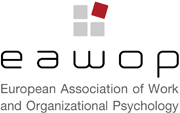Topics of Submission
1. Changing employment relations
- 1.1. Industrial relations
- 1.2. Part-time work
- 1.3. Temporary employment
- 1.4. Self-employment
- 1.5. Job insecurity
- 1.6. Employability
- 1.7. Union attitudes and participation
- 1.8. Power and influence
- 1.9. Globalization
2. Employee well being
- 2.1. Work stressors
- 2.2. Burnout and fatigue
- 2.3. Psychobiological stress reactions
- 2.4. Recovery and unwinding
- 2.5. Coping and social support
- 2.6. Well-being
- 2.7. Engagement
3. Health and interventions
- 3.1. Absenteeism and sick-leave
- 3.2. Stress management
- 3.3. Workplace health promotion
- 3.4. Prevention and intervention
4. Worktime arrangements and Work-Family Interface
- 4.1. Work time arrangements
- 4.2. Flexible work hours
- 4.3. Shift work
- 4.4. Scheduling of work
- 4.5. Work-family balance
- 4.6. Work-family conflict
- 4.7. Family-friendly organizations
5. Personnel selection
- 5.1. Recruitment
- 5.2. Construct validity
- 5.3. Criterion validity
- 5.4. Job analysis and competency modeling
- 5.5. Fairness and Applicant reaction
6. Human resource management
- 6.1. Reward systems
- 6.2. Performance appraisal
- 6.3. Psychological contract
- 6.4. Training and development
- 6.5. Career planning and management
- 6.6. Occupational choice and careers guidance
- 6.7. Diversity in the workplace
- 6.8. Equality in the workplace
- 6.9. Strategic HR
7. Leadership and management
- 7.1. Antecedents and outcomes of leadership
- 7.2. Leadership development
- 7.3. Managing flexibility
- 7.4. Managing diversity
- 7.5. Conflict management
- 7.6. Negotiation skills and processes
- 7.7 Decision-making
- 7.8. Leadership and Followership
- 7.9. E-Leadership and leadership across distance
8. Sustainable environment and organizations
- 8.1. Productivity
- 8.2. Service quality
- 8.3. Climate change
- 8.4. Environmental preservation and protection
- 8.5. Sustainable development
- 8.6. Organizational Ehics and Social Responsibility
9. Organizational Change and Development
- 9.1. Organizational change processes
- 9.2. Organizational development programs
- 9.3. Merger and acquisitions
- 9.4. Downsizing and outplacement
- 9.5. Outsourcing
- 9.6. Privatization
- 9.7. Managing organizational change
- 9.8. Consulting, coaching and counseling
- 9.9. Organizational Learning
- 9.10. Knowledge transfer
10. Labor market issues
- 10.1. Labor market entry
- 10.2. Career patterns and mobility
- 10.3. Turnover
- 10.4. Unemployment
- 10.5. Return-to-work
- 10.6. The aging workforce and retirement
11. Technology at work and human-machine-systems
- 11.1. Managing technical innovation
- 11.2. Person-technology interface
- 11.3. Human factors and ergonomics
- 11.4. Cognitive load
12. Occupational and organizational safety
- 12.1. Human error and accidents
- 12.2. Leadership and safety
- 12.3. Risk and safety management
- 12.4. Safety climate and safety culture
- 12.5. Reporting systems and event analysis
13. Macroergonomics / Work design
- 13.1. Work analysis and evaluation
- 13.2. Work system design
- 13.3. Environmental stressors at work
14. Organizational Behavior
- 14.1. Work attitudes and values
- 14.2. Organizational commitment and identification
- 14.3. Work motivation
- 14.4. Performance
- 14.5. Trust
- 14.6. Organizational justice
15. Organizational Structure, Culture and Climate
- 15.1. Organizational structure and design
- 15.2. Organizational culture
- 15.3. Multi-cultural organizations
- 15.4. Organizational climate
- 15.5. Organizational communication
- 15.6. Organization theory
16. Teams and workgroups
- 16.1. Group and team processes
- 16.2. Inter-group relations at work
- 16.3. Team building and effectiveness
- 16.4. Team work, creativity and innovation
- 16.5. Diversity in work teams
- 16.6. Cyberspace and virtual teams
17. Emotions in the workplace
- 17.1. Emotional labor
- 17.2. Management of emotions at work
- 17.3. Emotions and organizational contexts
18. Research and methodology
- 18.1. Research design
- 18.2. Measurement and psychometrics
- 18.3. Statistics and mehodological issues
- 18.4. Advances in quantitative research methods
- 18.5. Field and Experimental Research
- 18.6. Cross-Cultural Research
19. Consumer behavior and marketing
- 19.1. Consumer behavior
- 19.2. Marketing
20. Entrepreneurship / Self Employment
- 20.1. Entrepreneurial personality and entrepreneurial decision making
- 20.2. Founding Success and Business Success
- 20.3. Self employment, Intrapreneurship, Family Business
21. Economic psychology
- 21.1. Financial decision making
- 21.2. Saving, spending, credit use, tax behavior
- 21.3. Financial crisis





